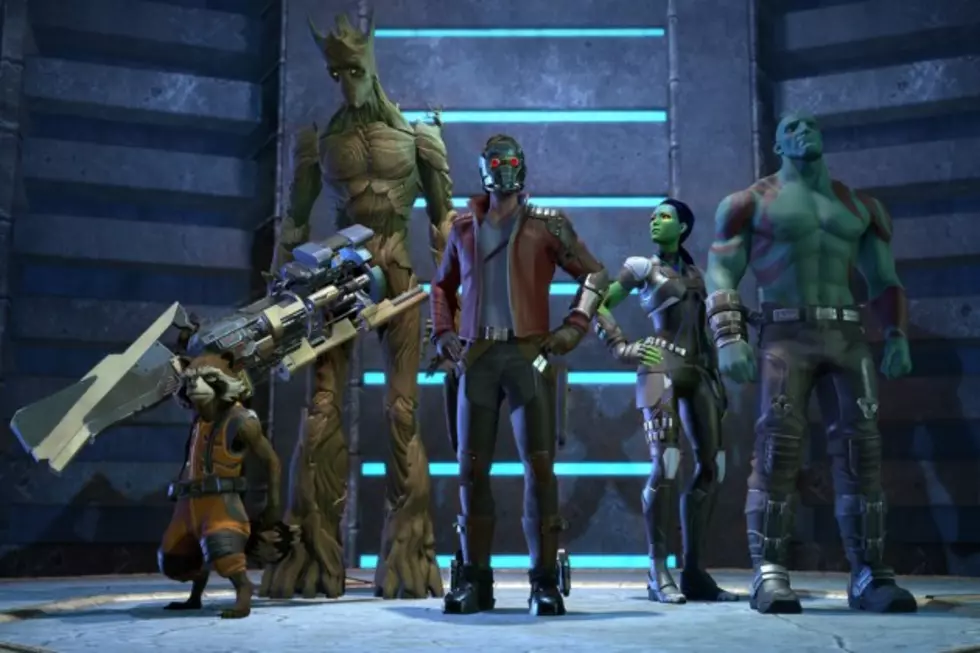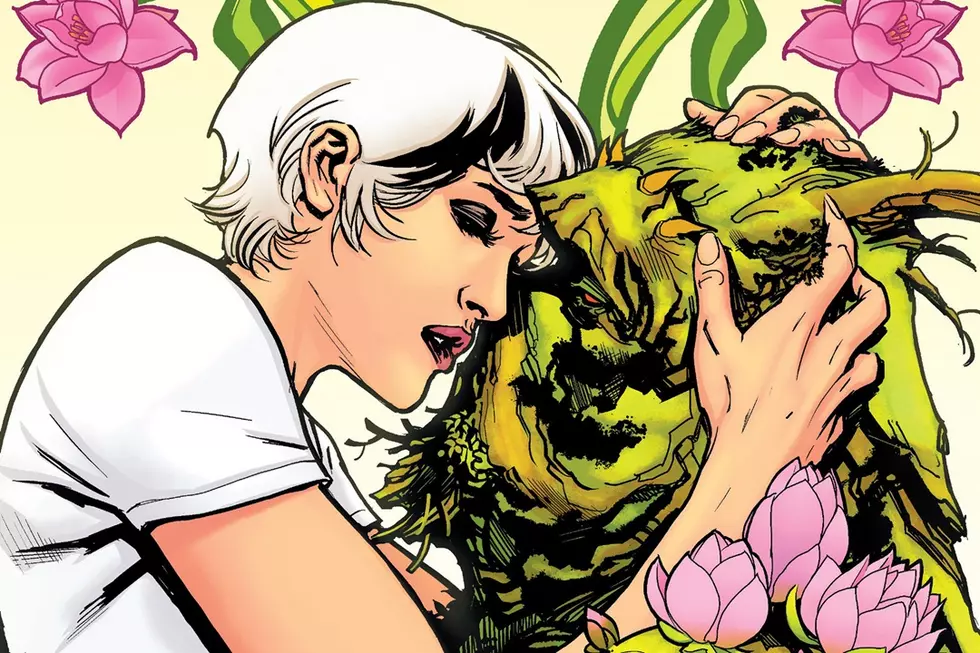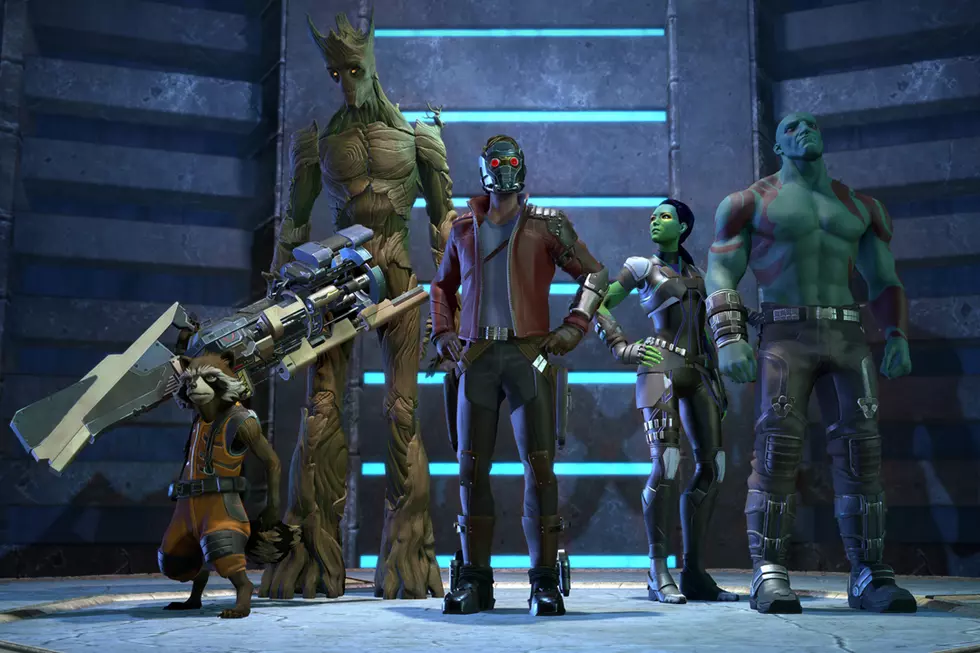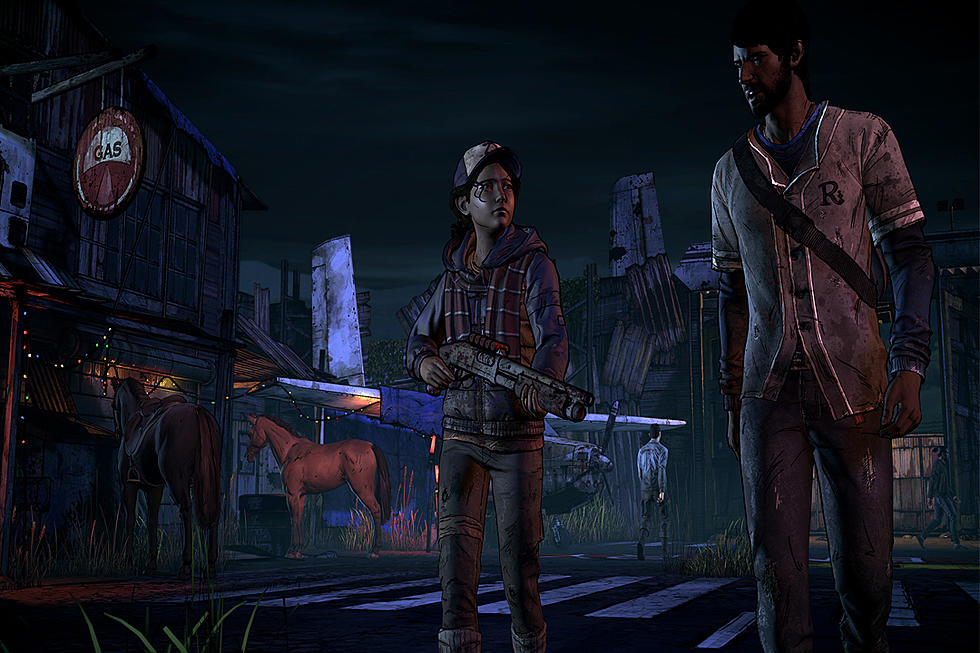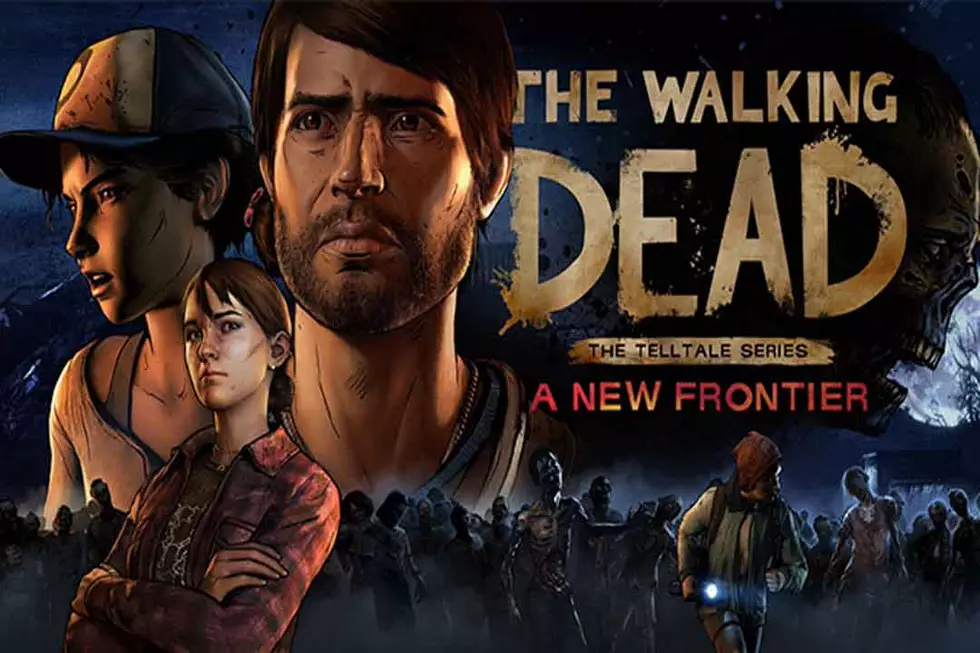![‘Fables’ Game ‘The Wolf Among Us’ Nails Neon Noir In Its First Episode [Review]](http://townsquare.media/site/622/files/2013/10/WolfAmongUs1.jpg?w=980&q=75)
‘Fables’ Game ‘The Wolf Among Us’ Nails Neon Noir In Its First Episode [Review]
The press materials for the first episode of Telltale Games' new Fables prequel series, The Wolf Among Us, note that players who are familiar with the company's Walking Dead games will "be right at home" with the game.
As far as the controls and the gameplay are concerned, that's completely true. They're basically identical. Tonally and stylistically, though, A Wolf Among Us blazes its own trail from the very first screen. This isn't even the ensemble drama/fantasy epic that Fables itself eventually became. The Wolf Among Us, at least in its episode one, "Faith," is neon noir all the way.
I think it's safe to say that the game's art direction team comprises of fans of Drive and films like it. The opening credits sequence, which comes after a wonderfully tense prologue with an extended fight scene, not only has a look awash with imagery of a neon-lit urban landscape, but also a moody, synth soundtrack. It's how you might imagine the world of Fables looks and feels through the filter of Sheriff Bigby Wolf's perception. The feel is all there in the visuals; the art direction does a good bit of the work. It's beautiful, from the character designs (a mix of Mark Buckingham's long run on the title and Lan Medina's art on the first arc) to the lighting and the level design.
In a lot of ways, this is the video game adaptation of a Bigby Wolf solo series that doesn't exist. Fables has never been a detective series, despite its first story arc being a murder mystery. The Wolf Among Us is nothing but mysteries, though. Even when Bigby comes across characters with whom Fables readers are familiar, he finds himself in the middle of conflicts that require hushed tones and sideways glances. That's not what Fabletown is, but when you're the guy who has to solve everyone's problems (and who everyone is afraid of), it's what you would experience.
If it's not clear yet, I really like the writing. As I said, the art direction does a ton of the heavy lifting, but it definitely helps that the story to go along with it is well told. Like The Walking Dead before it, The Wolf Among Us accomplishes something rare in video games: subtlety.
There's a lot of exposition about the concept of Fabletown to get out of the way in this episode, and rather than knock it out with a scene of one character telling another a bunch of stuff they already know or a character doing something they would never do (like telling a non-Fable about all the Fables), everything is organically explained as part of Bigby's investigation. Without giving too much away, Bigby encounters a Fable he's never met before, and he has to research her. So the game puts him in front of a book that lists off Fables. Then you can ask the Magic Mirror for even more information. You can explore as much or as little of it as you want.
That said, this game is hampered by a few story-related things that The Walking Dead game wasn't (I hate to continue comparing the two, but it's really tough to avoid). TWD had the benefit of putting a whole new set of characters in its zombie deathscape, so anything could happen to anyone at any time. Surprises weren't just possible, they were inevitable. The Wolf Among Us doesn't just use characters from the Fables series, it's a full-on prequel set 20 years before the first issue. That's great for the ambience (lots of little details indicate it's the 1980s, the very era of neon noir), but it undercuts the suspense a bit, at least for people familiar with the comics. It's a problem with prequels in general. Any peril to a character or relationship from the comics has to be a fake-out. That doesn't ruin anything, but it reduces the list of possibilities.
A far more crucial complaint I have with the game is with some of the technical stuff. Before I get to that, though, I should note that 90 percent of the gameplay is fantastic. I love investigating crime scenes and driving the story with my dialogue choices. Those parts run like a well-oiled machine, and the timer on dialogue choices actually make those decisions really laden with anxiety, and in a good way. The game feels urgent, and the choices you make can really mean the difference between life and death. It goes well beyond choices being "video gamey," if you will. They're not nominal decisions that ultimately don't mean anything. You can drastically change the direction of the story based on what you do. And as much as it bugs the gamer in me to not have a "right" way to play a video game, the part of me that loves narrative fiction can't get enough of it.
Here's the problem: When The Wolf Among Us speeds up, for a fight scene or a chase scene, it gets a little bit ahead of itself. Like in TWD, those parts play out as quicktime events. You push the control stick in a specific direction at a particular time or line up a reticle at the appropriate spot and tap a button. I'm not the biggest fan of those, but they're also not the worst gameplay element. That is, unless the game gets stuck loading and I never see the prompt, only the result of Bigby getting hit in the face with a flower pot.
Maybe my experience isn't typical in that regard. I played the game on an Xbox 360 with a few years on it and that has also frozen up a few times during Grand Theft Auto V. Perhaps the Steam and PS3 versions of the game run more smoothly, or it was just my hardware. But I personally ran into some frustrating lag and surprisingly long load times for a game that wasn't even running off a disc.
Those minor frustrations were a small price to pay for an uncommon video-game experience, though. Plenty of video games are difficult. Telltale has cornered the market on games that challenge. For story lovers, it's a distinction that makes all the difference.
More From ComicsAlliance

